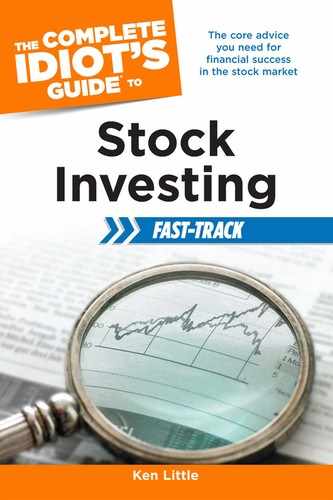Today’s discount broker has evolved into more than an order taker. There is a big slice of the market that wants something more than an order taker, but less than the handholding of a full-service broker. Many of these brokers offer investment advice, but short of the comprehensive planning you might get with a full-service broker. They may have excellent research resources available on their websites and robust online capabilities.
Discount brokers and their close cousins, online brokers, offer many of the same services, so choosing between the two may be based on other factors. Many of the leading discount brokers now offer a variety of services that were once the domain of full-service brokers. However, in most cases they do not offer investment advice. While some discount brokers may offer you the opportunity to speak directly with a broker who can at least offer some opinions on your decision, this will come at a higher price than their normal trade fee.
In the past, some discount brokers were merely phone banks who took your order over the phone and then emailed it to a third-party for actual execution. If you stick with well-known discount brokers, this is not likely to happen. In addition, some discount brokers have offices around the country where you can go to set up an account or place an order. Some discount brokers offer access to research, which may come from a third party. This is not a bad alternative if you want more detailed information than is readily available for free over the internet.
Discount brokers still take phone orders and many also offer online services if you’re more comfortable with that type of interface or if you are somewhere that a phone call is not practical. With the proliferation of smart phones and tablets, discount brokers offer apps that let you transact business on the go.
| MARKET RISK |
As with all brokers, it is important that you thoroughly understand the fees and commissions you will pay and when extras cost over and above the regular fees (more about this in the later section on stock orders). This should all be clearly explained on the company’s website, or if you visit in person you should be given a complete list of fees and commissions. Be especially careful about minimum deposits or account balances the company may require. If your balance drops below this minimum, you may be paying either a monthly service fee or higher charges on your trades.
Another area to consider is how much interest, if any, the broker will pay when you have cash in your account. For example, if you sell a stock, the money stays in your account until you tell the broker what to do with it. In some cases, you will want to reinvest it in the near future, which means it’s probably a better idea to simply leave it in the account rather than transfer it back and forth from the broker to you and you back to the broker when you are ready for your next buy. Some brokers may pay you interest on the money while it is waiting to be reinvested. This is not a deal breaker in most cases, because if you don’t plan to reinvest the cash soon, it’s better to take the money out of the brokerage account and put it somewhere else that pays more interest.
It’s a good idea to visit the discount broker’s website and become familiar with how they do business online. In some cases, the discount broker’s website may let you open a practice account where you can buy and sell stocks using fake money so you can become familiar with the software and how it works. If not, most discount brokers offer tutorials and even lessons on investing that may be helpful.
Long-term investors are usually not very active accounts for discount brokerages. You may not qualify for any special deals on commissions because you make only a few trades per year. The difference of a few dollars per trade is inconsequential when you seldom use the service. What is more important is how easy it is to access your account and make an order. For my money, you should be able to access your account by phone, by smart phone, by the web, or by walking into an office and talking to a real person.
The pros of discount brokers:
• May offer the same services as full-service brokers without high fees
• Usually don’t require a high initial deposit
• Can access your account in person, by phone, by smart phone, or online
Discount broker cons:
• May charge extra for all but basic services
• No fee breaks for infrequent traders
• Watch for minimum balance requirements
| STOCK TIP |
